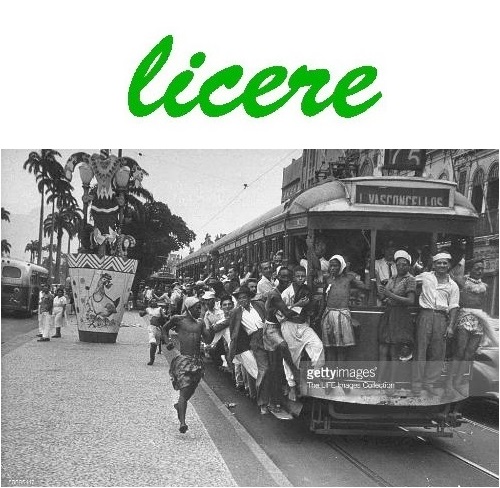Leisure
The Free Time to Dimension Cultural and the New Forms of Alienation
DOI:
https://doi.org/10.35699/1981-3171.2016.1205Keywords:
Leisure Activities, Work, HistoryAbstract
This paper presents an analysis of the concept of leisure through the meanings embedded along the historical process, focusing on the cultural memory of the beginning of time and advancing to understand the principles that drive the construction of the leisure sense nowadays. This is a study by means of bibliographic research of historical bias, critically analyzing the contribution of authors contextualize the leisure as the subject of study. In this direction, initially, there was an introductory approach to the origin of the word leisure, discussing especially the historical perspective of the theme. Subsequently, the definitions and various authors leisure theories were presented and in particular the discussion promoted by Norbert Elias. Extending the discussion was also exposed to approach Marxist authors leisure concept from the perspective of capitalism and the consumer society.
Downloads
References
ADORNO, T. W. Palavras e sinais. Petrópolis: Vozes, 1995. 262 p.
________. Prismas: crítica cultural e sociedade. São Paulo: Ática, 1998. 288 p.
BRACHT, V. Saber e fazer pedagógicos: acerca da legitimidade da Educação Física com componente curricular. In: CAPARROZ, F.E. (Org.). Educação Física escolar: política, investigação e intervenção. Vitória: Proteoria, 2001. p. 193-214.
BRASILEIRO, M. D. S. O Lazer e as Transformações Socioculturais Contemporâneas. Revista Lusófona de Estudos Culturais – Lusophone Journal of Cultural Studies. v. 1, n. 2, p. 90-108, 2013. Disponível em: http://estudosculturais.com/revistalusofona/index.php/rlec/article/view/35/51 . Acesso em: 19 jan. 2016.
CHAUÍ, M. Introdução. In: LAFARGUE, Paul. O direito à preguiça. São Paulo: Hucitec/Unesp, 1999. p. 9-20.
DIECKERT, J. Esporte de lazer: tarefa e chance para todos. Rio de Janeiro: Ao Livro Técnico, 1984. 184 p.
DUMAZEDIER J. Questionamento Teórico do Lazer. Porto Alegre: Editora EMMA, 1975. 73 p.
________. Lazer e Cultura Popular. 3. ed. São Paulo: Perspectiva, 2000. 333 p. ELIAS, N. A sociedade dos indivíduos. Rio de Janeiro: ZAHAR, 1984. 201 p.
________. O processo civilizador: Formação do Estado e Civilização. Rio de Janeiro: Jorge Zahar Ed., 1993, v. II. 308 p.
________. O processo civilizador: Uma história dos costumes. Rio de Janeiro: Jorge Zahar. Ed., 1994, v I. 264 p.
________.; DUNNING, E. Memória e sociedade a busca da excitação. Lisboa: Difel, 1992. 421 p.
LEFEBVRE, H. La production de l’espace. Paris: Anthropos, 1974. 512 p.
________. O direito à cidade. São Paulo: Moraes, 1991.
FOUCAULT, M. Nascimento da Biopolítica. Curso no Collège de France (1978- 1979). São Paulo: Martins Fontes, 2008. 496 p.
FRIEDMANN, G. O trabalho em migalhas: especialização e lazeres. São Paulo: Perspectiva, 1972. 287 p.
GAELZER, L. Lazer: benção ou maldição? Porto Alegre: Sulina, 1979. 191 p.
GOMES, C. L. Lazer, Trabalho e Educação: relações históricas, questões contemporâneas. 2ª edição Ver. E Ampl. Belo Horizonte: Editora UFMG, 2008. 151 p.
HUYSSEN, A. Guia del posmodernismo. In: CASULLO, Nicolas (Org.). El debate modernidad e posmodernidad. Buenos Aires: El cielo por asalto, 1993. 327 p.
LENHARO, A. Sacralização da política. Campinas: Papirus, 1986. 218 p.
MAYA, P.V.R. Trabalho e tempo livre: uma abordagem crítica. In: JACQUES, M.G.C., et al. (Org.). Relações sociais e ética. Rio de Janeiro: Centro Edelstein de Pesquisas Sociais, p. 31-47, 2008.
MARCELLINO, N. C. Lazer e Educação. 11. ed. Campinas: Papirus, 2004. 164 p.
________. Estudos do lazer: uma introdução. 4. ed. Campinas: Autores Associados, 2006. 97 p.
MARCUSE, H. La agressividad en la sociedad industrial avanzada. Madrid: Alianza Editorial, 1971. 136 p.
MARX, K. O Capital. São Paulo: Nova cultural, 1988. 286 p. v. 1.
________. Manuscritos econômico-filosóficos. Lisboa: Edições 70, 1989. 214 p.
MONTANER, J. Psicosociología del turismo. Madrid: Síntesis, 1996. 240 p.
OLIVEIRA, C. Sobre lazer, tempo e trabalho na sociedade de consumo. Revista digital. Buenos Aires – Ano 11 – N° 97-Junho. p. 20-34, 2006. Disponível em: http://www.efdeportes.com/efd97/trabal.htm. Acesso em: 19 jan. 2016.
REQUIXA, R. Sugestões de diretrizes para uma política nacional de lazer. São Paulo: SESC, 1980. 103 p.
SAN MARTÍN, J. E. Psicosociología del ocio y el turismo. Granada: ALJIBE, 1997. 153 p.
TASCHNER, G. B. Lazer, Cultura e Consumo. RAE – Revista de Administração de Empresas. Out./Dez. 2000. E v. 40, n. 4, Out./Dez. 2000. Disponível em: http://www.scielo.br/pdf/rae/v40n4/v40n4a04.pdf. Acesso em: 20 nov. 2014.
WERNECK, C. Lazer, Trabalho e Educação: relações históricas, questões contemporâneas. Belo Horizonte: Ed. UFMG; CELAR-DEF/UFMG, 2000. 267 p.

